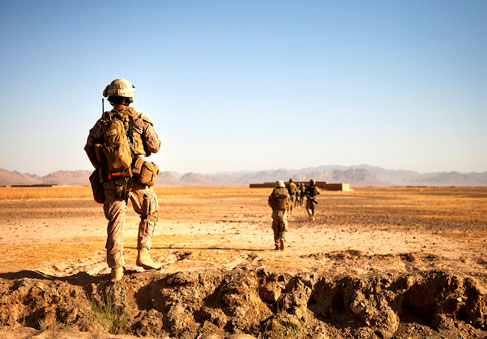Heat illness is a major threat to health and performance during military training and operations. Learn about the symptoms of heat illnesses, how to prevent them, and how to survive and perform in hot environments.
Prevention and treatment of heat and cold stress injuries [PDF]
This manual (NEHC-TM-OEM 6260.6A) provides current Navy knowledge on heat and cold stress injuries, including their causes, prevention, treatment, and effects.
Heat stress control and heat casualty management [PDF]
This Army bulletin (TB MED 507) covers heat-related issues, including the physiologic responses to heat, managing heat stress (including work-rest cycles, fluid and electrolyte replacement, and acclimatization), and recognizing and treating heat illness and injury.
Heat-related illness prevention
This Army Public Health Center web page includes links to articles, fact sheets, policy documents, and training materials for preventing and treating heat-related illness.
APHC heat illness fact sheet [PDF]
This 2-page fact sheet from the Army Public Health Center summarizes some of the major issues associated with heat illness, including causes, risk factors, and symptoms.
Guidelines for return to duty (play) after heat illness: A military perspective [PDF]
This journal article suggests guidelines for how to determine whether it’s safe for a Service Member to return to duty after experiencing a heat injury. It includes a discussion of standards for the Army, Air Force, Navy, and Marines.
Heat illness prevention pocket guide [PDF]
Use this pocket guide from the Army Public Health Center to learn about the warning signs and symptoms of heat injury, work/rest water consumption recommendations, and heat illness controls.
Heat acclimatization guide: Ranger/Airborne students [PDF]
This booklet targets students of “elite” military schools with a brief overview about heat acclimatization and strategies to help you adjust.
See also HPRC’s “Where do you serve?” section for your branch of service for additional policy and other branch-specific information. See our home page for links to each service branch.
